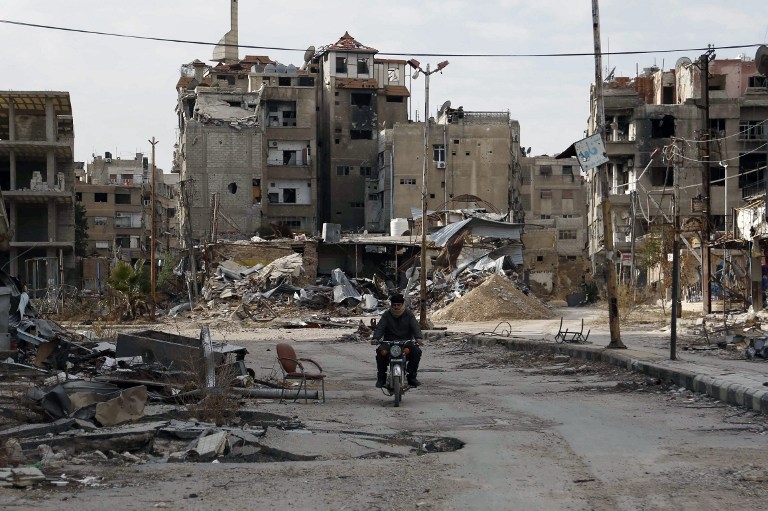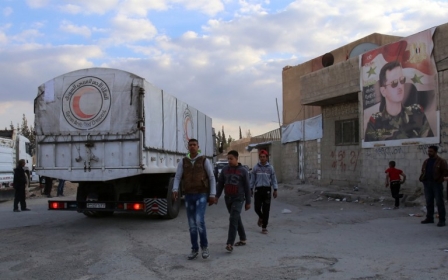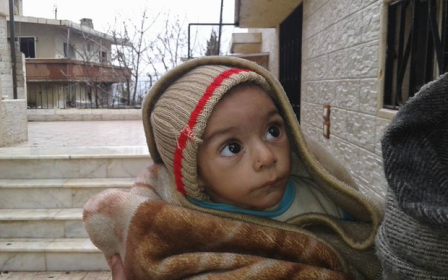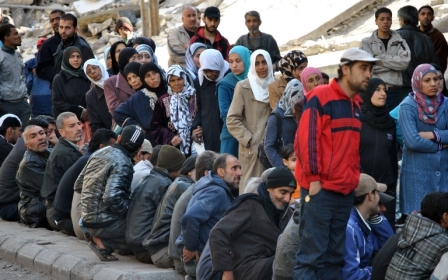Aid reaches besieged Syrian town for first time in four years

Aid agencies delivered food, medicine and other essentials for 10,000 people to the besieged Damascus suburb of Harasta on Wednesday for the first time in four years, the International Red Cross (ICRC) confirmed.
Twenty-nine trucks carried food and medicine to the town in Eastern Ghouta, a rebel bastion under government siege since mid-2013, according to ICRC spokesman Pawel Krzysiek.
"For the ICRC, it is the first aid delivery to the area since 2012," he said.
The trucks also brought birth delivery kits and school supplies to the northeastern suburb, Krzysiek said.
The convoy comes a day after world powers called on the United Nations to carry out air drops over besieged areas from 1 June if government blockades prevent aid convoys from entering.
One such convoy was denied entry to the rebel-held town of Daraya southwest of Damascus last week, dashing hopes for its first delivery since the government siege began there in 2012.
Last month, UN envoy Staffan de Mistura listed Harasta, nearby Duma - also besieged by the government - and Daraya as being among areas in urgent need of supplies.
The UN says that more than 400,000 people are living under siege in Syria, most of them in areas besieged by the government.
Siege Watch, an independent monitoring network, however, has said that the total number of Syrians besieged is more than one million, while the NGO Doctors Without Borders puts it at almost two million.
Syria's conflict has killed more than 270,000 people and displaced millions since it erupted with the brutal repression of anti-government protests in 2011.
Stay informed with MEE's newsletters
Sign up to get the latest alerts, insights and analysis, starting with Turkey Unpacked
Middle East Eye delivers independent and unrivalled coverage and analysis of the Middle East, North Africa and beyond. To learn more about republishing this content and the associated fees, please fill out this form. More about MEE can be found here.




